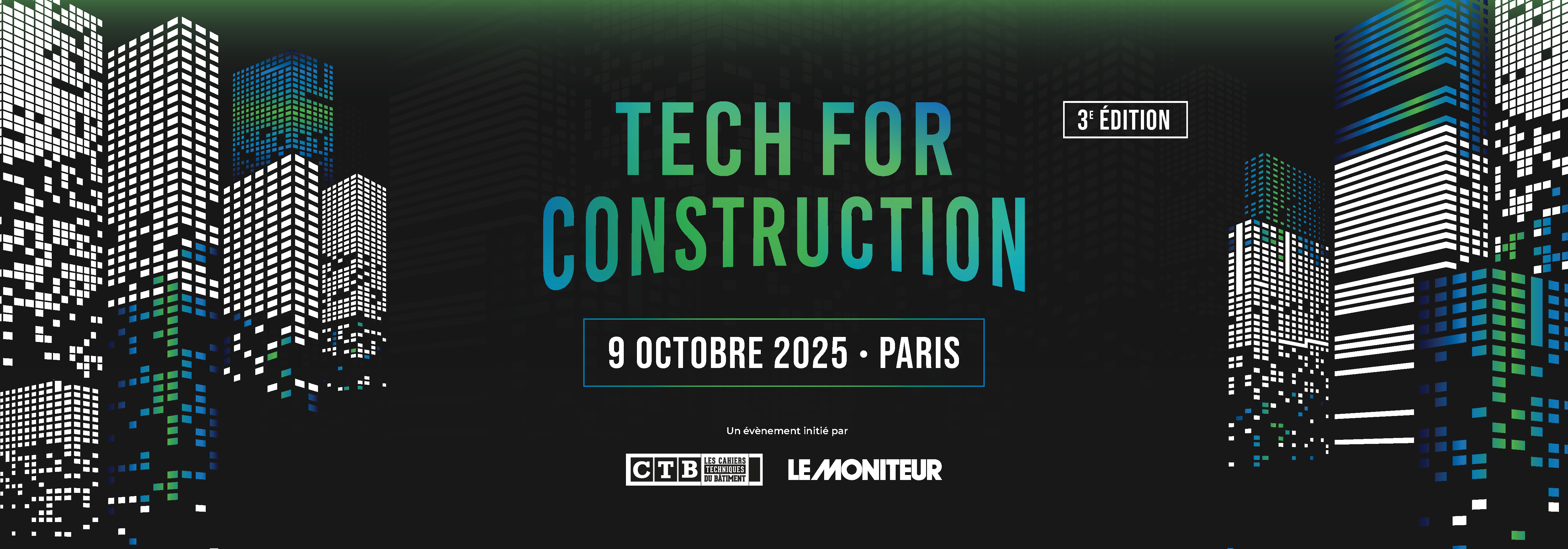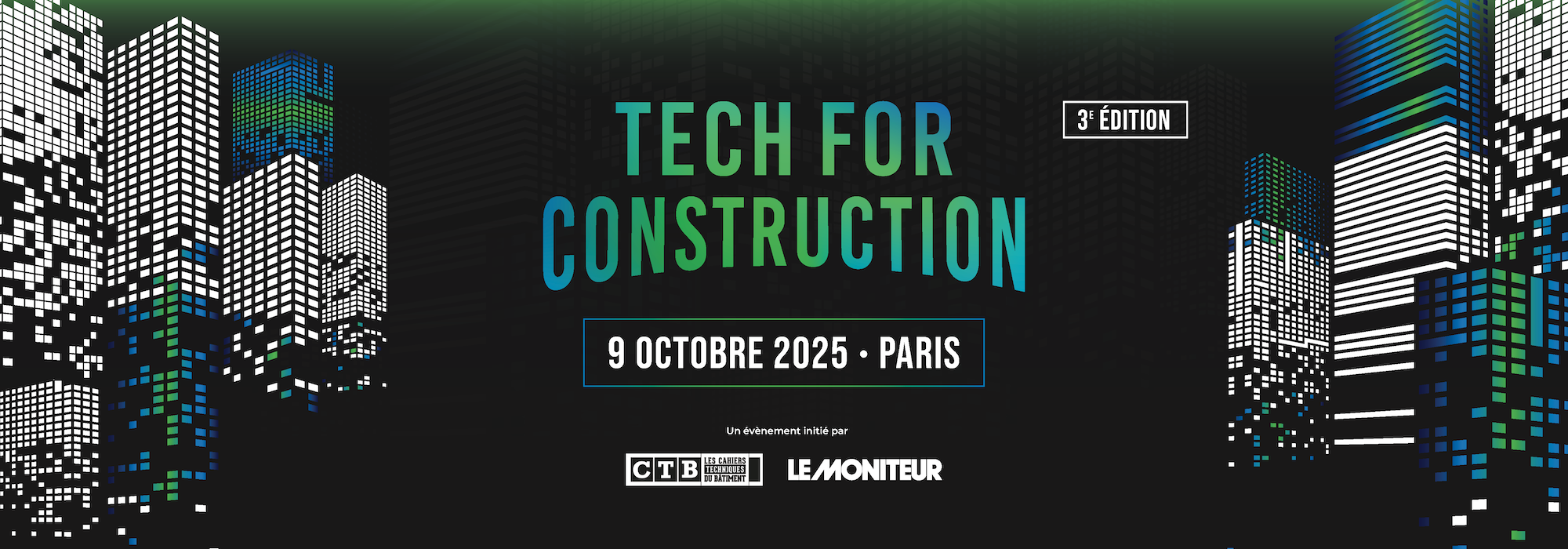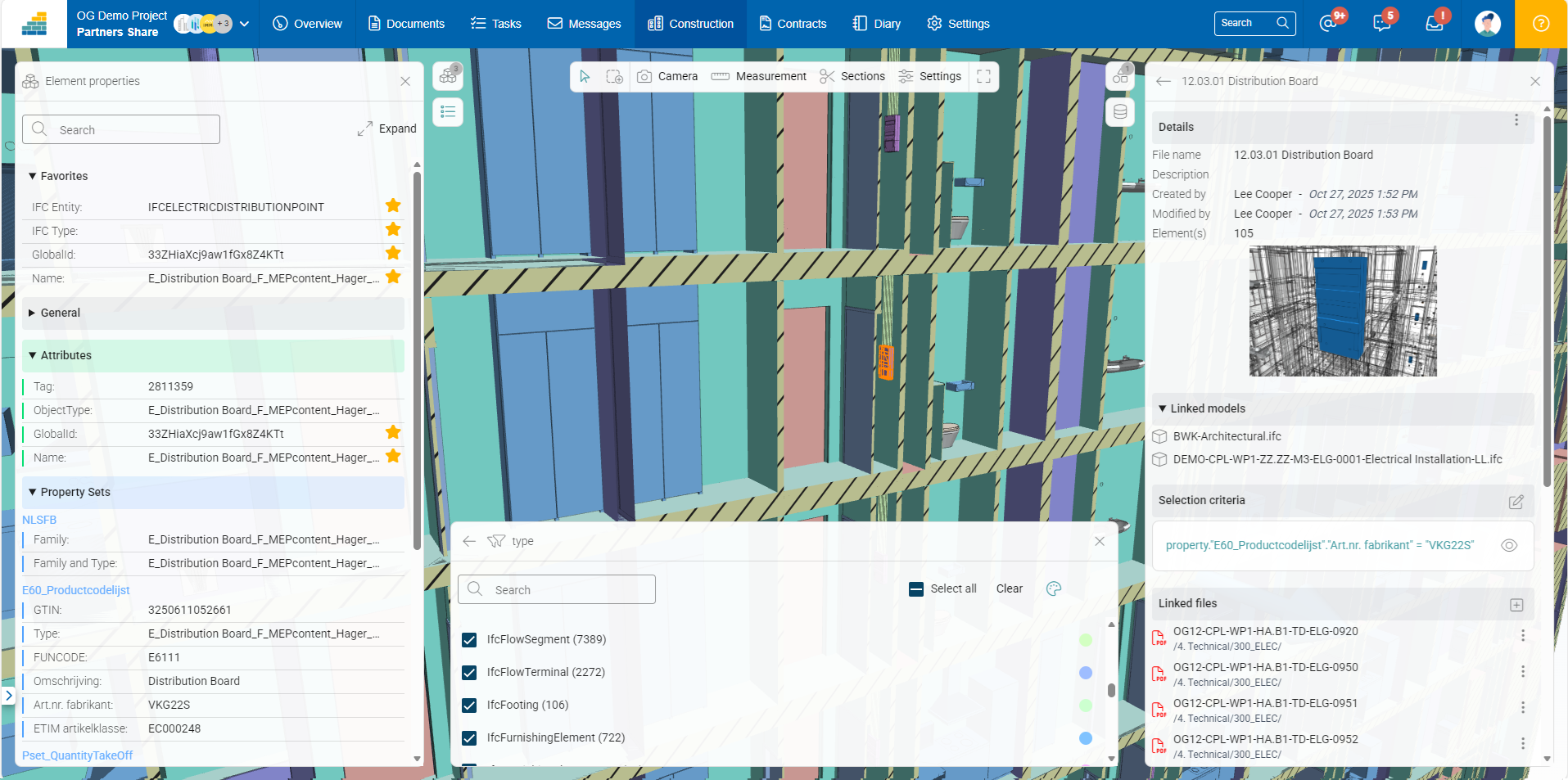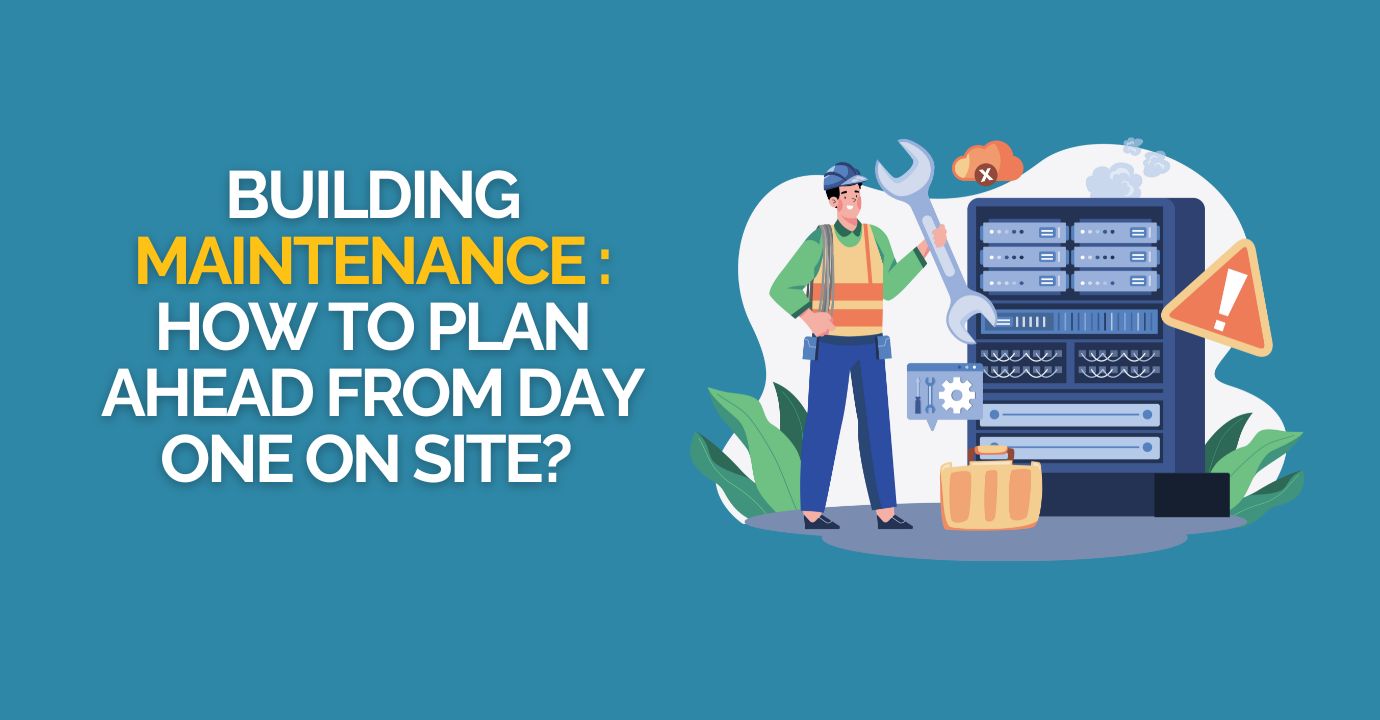Introduction
From data to intelligence: how tech for construction is transforming the industry

On Thursday, October 9, Cooperlink took part in the third edition of Tech for Construction, organized by Le Moniteur and CTB (Cahiers Techniques du Bâtiment) in Paris.The event offered a great opportunity to exchange ideas about artificial intelligence, innovation, and their impact on the ongoing transformation of the construction sector.
We are witnessing a true silent revolution, that of the augmented construction site. The industry is undergoing a profound transformation.
But what does the term Tech for Construction really encompass?
Is it a peripheral trend or a powerful wave that is redefining professions, from design offices to construction sites, including project managers responsible for delivering within the cost–quality–time triangle while ensuring a safe framework for their teams?
Behind this movement lies a clear goal: turning data into value, and expertise into reusable intelligence.
It’s about capitalizing on knowledge and enriching feedback to build a more efficient, smarter, and more sustainable future.
Among the conferences and discussions, one key point stood out: data is crucial.
From raw data to living data
Each construction project generates a massive amount of documents, drawings, reports, photos, contracts, meeting minutes, and emails.
These data need to be sorted, cleaned, and consolidated. For a long time, they were scattered across various locations: emails, site visit reports, technical specifications, or other project documents.
Today, this data has become the driving force behind a new digital era.
Information management solutions, such as next-generation collaborative platforms, make it possible to centralize, clean, and structure project data.
The result is what we call a Common Data Environment (CDE), as exemplified by the Cooperlink Construction Hub: a truly collaborative digital workspace where every stakeholder accesses the right version of the right document, at the right time.
But the challenge doesn’t end there.
Artificial intelligence (AI) now enables this data to be enriched and ensures its smooth flow and distribution.
It can detect inconsistencies, automatically anticipate deviations, or answer specific queries.
What was once a mountain of files has now become an active, interactive knowledge base.
The real technological revolution in construction lies in how technology is used.
Although technology was the star of the event, it’s worth remembering this: every innovation must first address a concrete, tangible need and deliver real value.
Leaders who understand that AI is not a gadget but a decision-making aid are already beginning their transition.
Some companies have trained hundreds of managers in AI culture, identifying concrete use cases such as automated meeting reports, decision support, anomaly detection on site, or even generative design.
The productivity gains are significant.
A simple conversational assistant can now:
• Analyze complex documents in seconds
• Generate automatic summaries
• Detect defects in structure images
• Suggest personalized action plans based on inspection reports
In infrastructure maintenance, AI models are already reaching 80% accuracy in crack detection and defect classification, trained on datasets of over 100,000 images.
These technological building blocks are now being applied to other areas of construction: buildings, civil works, and engineering structures.
Augmented construction sites ?
The discussion also covered the concept of the augmented construction site and the shift from know-how to knowledge capitalization.
At the heart of this transformation lies the virtualization of expertise.
By modeling construction processes, companies can capture their best practices and replicate them on a larger scale.
There is growing talk of digital models and operational digital twins, tools capable of managing the site, simulating uncertainties, and standardizing operating procedures.
This capitalization of know-how, combined with generative approaches, makes it possible to:
• shorten design timelines
• improve cross-trade coordination
• secure interfaces between project packages
The benefits are also human: by giving each team immediate access to the right information, trust and execution quality are strengthened.
Another major issue is data sovereignty, ethics, and digital responsibility.
Leading construction players now demand that their systems no longer depend on foreign infrastructures and that they comply with national and European regulatory frameworks.
This requirement for trust is key to the large-scale adoption of AI and cloud technologies in the sector.
The digital transformation of construction can only be sustainable if it combines innovation and ethics, respecting privacy, ensuring algorithmic transparency, and maintaining control over the entire data lifecycle. The GDPR was a major step in that direction.
At Cooperlink, data sovereignty has been at the heart of our mission since day one. You can learn more about our security principles and how your data is managed.
What is your project?
Talk to an expert
Tell us more about your project and needs. Our experts will answer your questions within 24 hours.
.jpg)
Hugues Ouchala
Business developper












